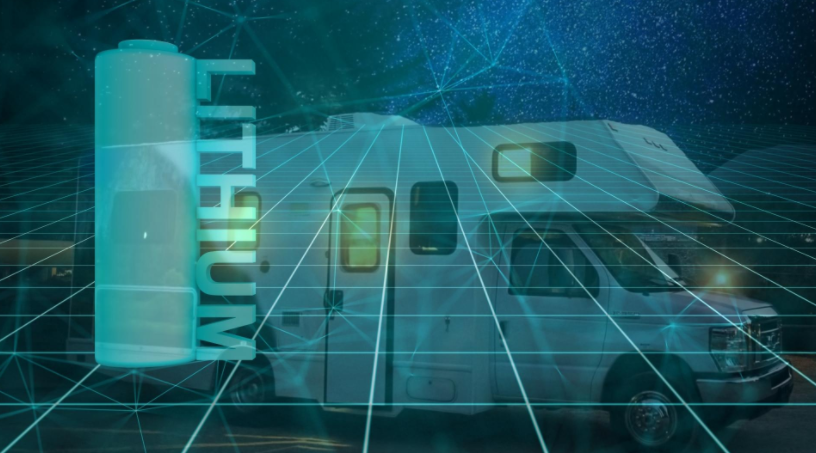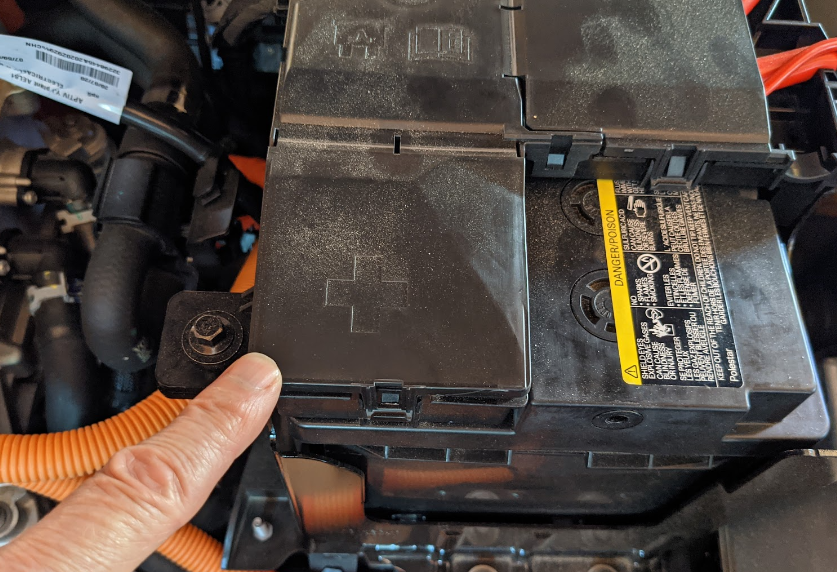Are lithium batteries revolutionizing smart grids?
In today’s fast-paced and technology-driven world, the demand for efficient and sustainable energy sources is on the rise. As traditional energy grids struggle to keep up with the increasing energy demands, the concept of smart grids has gained significant attention. Smart grids aim to optimize energy distribution and consumption through advanced technologies and innovative solutions. One such solution that is revolutionizing smart grids is the use of lithium batteries.
Lithium batteries, known for their high energy density and long-lasting performance, have become the go-to choice for many applications. From smartphones to electric vehicles, lithium batteries have proven their efficiency and reliability. Now, they are making their way into the smart grid industry, offering a range of benefits that can reshape the future of energy distribution.
One of the key advantages of lithium batteries in smart grids is their ability to store large amounts of energy. As renewable energy sources such as solar and wind power become more prevalent, the intermittent nature of these sources poses a significant challenge to the stability and reliability of the grid. Lithium batteries can store excess energy during times of low demand and release it during peak hours, ensuring a consistent and reliable power supply. This not only improves the grid’s stability but also enables better integration of renewable energy sources into the existing infrastructure.
Moreover, lithium batteries offer fast response times and high discharge rates, making them ideal for applications that require rapid energy supply. In the event of a power outage or sudden increase in demand, lithium batteries can provide an instant power boost, preventing disruptions and ensuring uninterrupted service. This capability is particularly crucial for critical infrastructure, such as hospitals, data centers, and emergency services, where even a momentary power loss can have severe consequences.
Additionally, the compact size and lightweight nature of lithium batteries allow for flexible installation and easy scalability. Unlike traditional lead-acid batteries, which are bulky and require significant space, lithium batteries can be installed in smaller areas, both indoors and outdoors. This makes them suitable for urban environments where space is limited. Furthermore, as the demand for energy storage capacity increases, lithium batteries can be easily expanded by adding more units, providing a scalable solution for future energy requirements.
Furthermore, the long lifespan and low maintenance requirements of lithium batteries make them a cost-effective choice for smart grids. With proper management and maintenance, lithium batteries can last for over a decade, significantly reducing the need for frequent replacements and associated costs. Moreover, the self-discharge rate of lithium batteries is relatively low, resulting in minimal energy loss over time. This not only improves the overall efficiency of the smart grid system but also reduces the environmental impact by minimizing waste.

While the benefits of lithium batteries in revolutionizing smart grids are undeniable, there are still some challenges that need to be overcome. The high initial cost of lithium batteries can be a deterrent for widespread adoption, especially for smaller utilities with limited budgets. However, as the technology continues to advance and the demand increases, the cost of lithium batteries is expected to decrease, making them more accessible to a broader range of users.
In conclusion, the integration of lithium batteries into smart grids has the potential to revolutionize the energy industry. With their high energy density, fast response times, and scalability, lithium batteries offer a reliable and efficient solution for storing and distributing energy. As the world moves towards a more sustainable future, the use of lithium batteries in smart grids will play a crucial role in optimizing energy distribution, integrating renewable sources, and ensuring a reliable power supply for all.
-
 Introduktion Lithium Iron Phosphate (LiFePO4) batterier er hurtigt ved at blive populære blandt motorcykelentusiaster på grund af deres holdbarhed, lange levetid og overlegne ydeevne sammenlignet med konventionelle bly-syre batterier. Disse batterier er kendt for deres høje energitæthed, lave afladningshastigheder og sikre drift, hvilket gør dem til et ideelt valg til motorcykelapplikationer. I denne artikel vil vi diskutere fordelene ved...Læs mere
Introduktion Lithium Iron Phosphate (LiFePO4) batterier er hurtigt ved at blive populære blandt motorcykelentusiaster på grund af deres holdbarhed, lange levetid og overlegne ydeevne sammenlignet med konventionelle bly-syre batterier. Disse batterier er kendt for deres høje energitæthed, lave afladningshastigheder og sikre drift, hvilket gør dem til et ideelt valg til motorcykelapplikationer. I denne artikel vil vi diskutere fordelene ved...Læs mere -
 As lithium-ion batteries become more prevalent in our daily lives, it\'s important to understand their key characteristics in order to make informed decisions about using and purchasing them. One type of lithium-ion battery that has gained popularity in recent years is the LifePO4 battery, which stands for Lithium Iron Phosphate. One of the key characteristics of a LifePO4 battery...Læs mere
As lithium-ion batteries become more prevalent in our daily lives, it\'s important to understand their key characteristics in order to make informed decisions about using and purchasing them. One type of lithium-ion battery that has gained popularity in recent years is the LifePO4 battery, which stands for Lithium Iron Phosphate. One of the key characteristics of a LifePO4 battery...Læs mere -
 Agriculture plays a crucial role in global food production, and advancements in technology have significantly transformed the industry. One such innovation is the use of high-power lithium batteries for agricultural tools. These batteries have revolutionized the efficiency and productivity of farming practices, offering numerous benefits to farmers. In this article, we will explore the advantages of high-power lithium batteries in...Læs mere
Agriculture plays a crucial role in global food production, and advancements in technology have significantly transformed the industry. One such innovation is the use of high-power lithium batteries for agricultural tools. These batteries have revolutionized the efficiency and productivity of farming practices, offering numerous benefits to farmers. In this article, we will explore the advantages of high-power lithium batteries in...Læs mere -
 A Lifepo4 battery pack is a type of rechargeable battery that is designed to provide long-lasting power for a variety of applications. These batteries are known for their high energy density, low self-discharge rate, and long cycle life, making them an ideal choice for use in electric vehicles, home energy storage systems, and other industrial applications. One of the...Læs mere
A Lifepo4 battery pack is a type of rechargeable battery that is designed to provide long-lasting power for a variety of applications. These batteries are known for their high energy density, low self-discharge rate, and long cycle life, making them an ideal choice for use in electric vehicles, home energy storage systems, and other industrial applications. One of the...Læs mere -
 In the world of energy storage, lithium-ion batteries have been rapidly gaining popularity due to their high energy density and long cycle life. Among them, the 12V 100Ah Lithium Lifepo4 battery has emerged as a high-performance and efficient energy storage solution. In this article, we will explore what makes this battery a superior choice for energy storage. Firstly, let's...Læs mere
In the world of energy storage, lithium-ion batteries have been rapidly gaining popularity due to their high energy density and long cycle life. Among them, the 12V 100Ah Lithium Lifepo4 battery has emerged as a high-performance and efficient energy storage solution. In this article, we will explore what makes this battery a superior choice for energy storage. Firstly, let's...Læs mere -
 If you are looking for a long-lasting power solution for your application, you might want to consider the LiFePO4 battery. The 12V 100Ah LiFePO4 battery is one of the most efficient and reliable energy storage options available today. What is a LiFePO4 Battery? LiFePO4 stands for Lithium Iron Phosphate, and it is a type of rechargeable battery that...Læs mere
If you are looking for a long-lasting power solution for your application, you might want to consider the LiFePO4 battery. The 12V 100Ah LiFePO4 battery is one of the most efficient and reliable energy storage options available today. What is a LiFePO4 Battery? LiFePO4 stands for Lithium Iron Phosphate, and it is a type of rechargeable battery that...Læs mere -
 Lithium Iron Phosphate (LiFePO4) batteries have emerged as a promising technology for energy storage. They offer several advantages over other battery chemistries and are being increasingly used in various applications. In this article, we will explore the potential of LiFePO4 batteries and their role in shaping the future of energy storage technology. Firstly, let understand what LiFePO4 batteries are....Læs mere
Lithium Iron Phosphate (LiFePO4) batteries have emerged as a promising technology for energy storage. They offer several advantages over other battery chemistries and are being increasingly used in various applications. In this article, we will explore the potential of LiFePO4 batteries and their role in shaping the future of energy storage technology. Firstly, let understand what LiFePO4 batteries are....Læs mere

